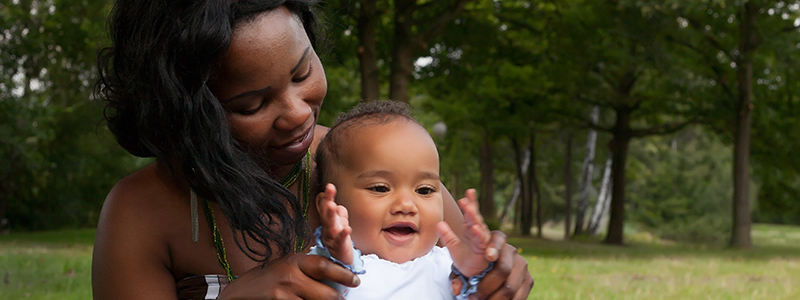There are many faces to homelessness; countless different contributing factors, and in itself many different types of homelessness.
Rough sleeping is what we initially think of when we visualise homelessness. But homelessness also includes couch surfing, living in emergency accommodation or refuges, having insecure or no tenure, and residing in accommodation that falls below acceptable standards (e.g. space requirements)**.
At CatholicCare we believe everyone deserves the opportunity to live life to the full, but homelessness and contributing factors can be a barrier to this.
Mental health issues and physical illness, redundancy or unemployment, substance abuse, trauma, family or relationship breakdown, and immigration can all lead to homelessness, increase the risk of homelessness, or be caused by homelessness.
These issues and challenging experiences, which no one are immune to, can be worked through and overcome with the right support.
Following are stories of people we have supported where homelessness, or a risk of homelessness, were part of their journey to a more secure and brighter future.
Abbie’s Story
37-year-old mum Abbie* has four children under the age of 11 and is the main breadwinner for her family.
Amidst the initial Covid-19 lockdown, the shop she was working at had to close its doors, and her family were left with no income. They had no way to pay the rent, they were struggling to put food on the table, and their bills started stacking up.
Through the support of our Emergency Relief team, Abbie and her family found the immediate help they needed to pay for rent, groceries and fuel vouchers; enough to tide them over until their Centrelink payment came through.
'CatholicCare really helped us when we were in a very tough spot financially. I lost my job and we got very behind in bills, and my husband and I became very stressed as to how we would put food on the table. CatholicCare helped us pay our bills and with food relief - it was fantastic, it lifted that weight off and relieved some stress so we could concentrate on our children and making them feel safe at this scary time.' - Abbie

Negasi’s Story
Negasi* was sponsored by his older brother to come from Ethiopia to live with him in Australia. Negasi was frustrated about his unemployment status and he felt isolated, not knowing where to go for help. Negasi turned to alcohol and Khat (a stimulant drug) in an attempt to overcome these feelings.
Negasi’s behaviour became intolerable, so his brother evicted him, leaving Negasi homeless. Thankfully, a member of the community then referred Negasi to CatholicCare’s Alcohol and Other Drug program for help.
CatholicCare discovered that Negasi’s circumstances had deteriorated drastically, and he was seeking shelter in parks and on the street.
Being homeless exacerbated his feelings of isolation, loneliness and sense of unworthiness, and he was struggling with issues of anxiety and low self-esteem.
Kaleb*, one of CatholicCare’s Alcohol and Other Drug program practitioners, supported Negasi to get his life back on track. He referred Negasi to a local housing service and employment agency, and provided specialised counselling for ongoing emotional support, harm minimisation strategies and a plan for decreasing his dependency on alcohol and Khat.
Kaleb also helped Negasi with writing his resume, and linked him into a local support group so he could form new, meaningful connections with others who were experiencing similar situations.
Negasi was persistent and motivated to turn his life around - with this support he found a place of residence, secured employment, and he overcame his feelings of anxiety and low self-esteem.
He also stopped taking Khat and significantly decreased his drinking habits.
'I don’t have enough words to express what CatholicCare did for me. I am now employed, I am not homeless, I am not a person without dignity anymore.’ - Negasi

Rayan’s Story
Rayan* was a pregnant mother with several children when she left war torn Africa to seek safety for her family in Australia.
Rayan and her family lived with relatives for several months and her children started school, but it was not long before they found themselves on the verge of homelessness.
Shortly after Rayan gave birth, CatholicCare was able to offer the family supported housing through our Asylum Seeker Support Program, delivered in partnership with parish volunteers.
The new location for their housing required the children to move schools, which worried Rayan greatly, and so CatholicCare helped to link the family to schools and support services in the local area.
The local parish offered material aid and emergency relief and assisted with orientation to the community (shopping, playgrounds and parks) and helped with regular English conversation practice for the mother. This practical support helped stabilise and strengthen Rayan’s emotional and physical wellbeing, along with that of her children’s.
The family then moved to another property provided by a CatholicCare partner, closer to their cultural community, so they could form new connections and supports.

Homelessness is not something that can be solved overnight, and housing alone is only part of the solution. But if we can band together, support those in need and fight for change, we can make the world a better, brighter place for all.
For more information on homelessness and what you can do to help, visit the following websites:
Homelessness Australia | Everybody’s Home
* At CatholicCare, we respect everyone who comes to us for help and many are working towards a fresh start in life. So while the stories and quotes are true, client names and images and some staff names have been changed to protect their privacy. Thank you for your understanding.
** What is homelessness – Homelessness Australia
Read more: